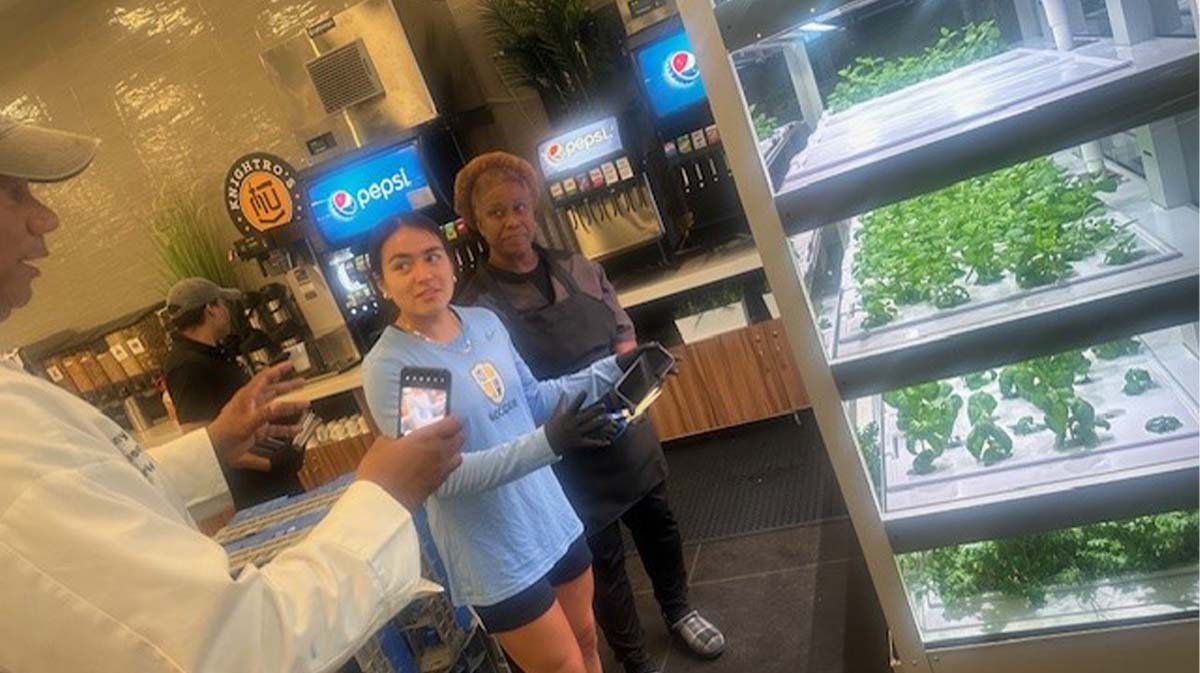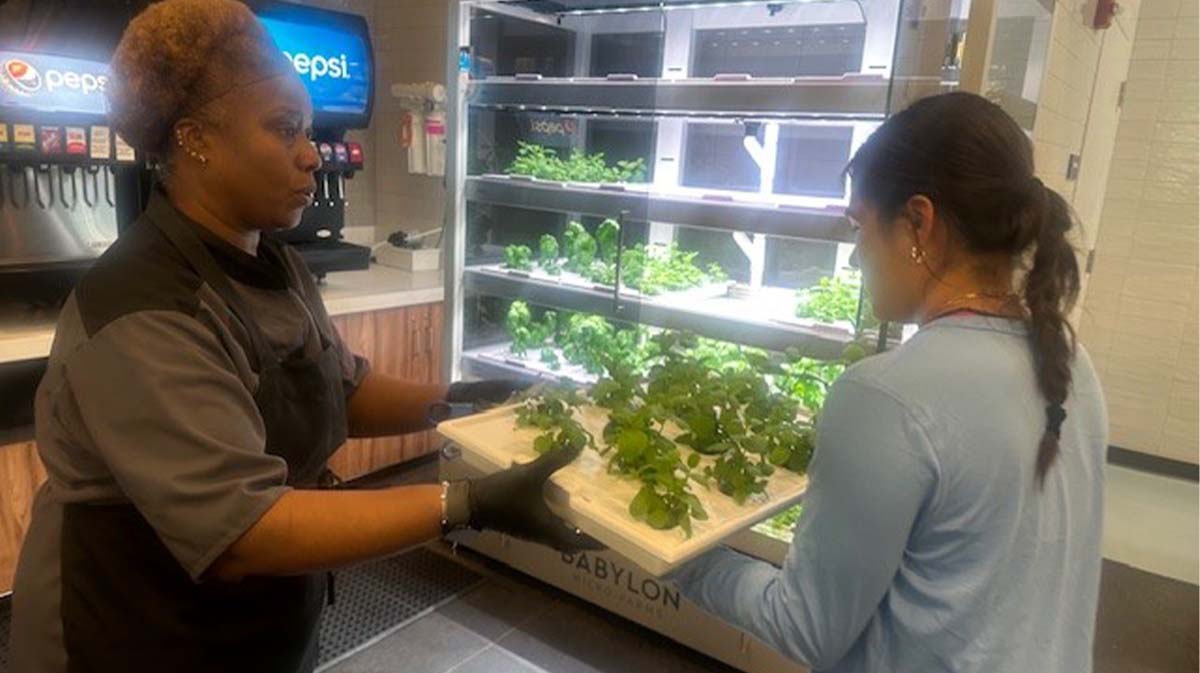 Marian University is exploring sustainability in a new way with its first-ever hydroponics system, which provides fresh greens and herbs in the dining commons. The trial system, now growing arugula, mixed greens, basil, and mint, is a collaboration between the university’s dining services and engineering students.
Marian University is exploring sustainability in a new way with its first-ever hydroponics system, which provides fresh greens and herbs in the dining commons. The trial system, now growing arugula, mixed greens, basil, and mint, is a collaboration between the university’s dining services and engineering students.
For Silvia Quezada ’26, a mechanical engineering major with a focus on agricultural engineering, the project combines her academic interests with her campus job. “It creates an opportunity for students to know the university is putting an investment in the quality of food, and where the food is coming from is really important, and trust is part of it,” said Quezada, who has prior experience working with hydroponic systems. “Nutrition, biology…this is an opportunity for students to be exposed to healthier food products that are locally sourced and sustainable. Even for students who might be interested in learning more, they will have the opportunity to get exposed to scenarios like this or others.”
The Marian dining team will use the harvest to enhance meals across the dining commons and display signage so students can see which dishes feature the homegrown additions. Executive Chef Tony Wilson emphasized the benefits of this move, saying, “Giving fresh, homegrown products is a really great way to go. With Silvia taking the initiative to help me with this program is excellent. This is great for the students and the university to have fresh products daily,” he added, “This is step one of many initiatives to make sure students are getting fresh products and locally grown items.”
While this marks Marian’s first hydroponic installation through dining services, the university’s engineering program, working with faculty at Marian’s Ancilla College, already operates two systems. Under the leadership of Dr. Neal Knapp, assistant professor of agriculture, students are currently designing a new prototype to expand on hydroponics technology and learning.
Chef Wilson added that Quezada will ultimately train cafeteria workers to operate the system, further connecting Marian’s food services with student innovation. As the pilot grows, the university plans to highlight the produce through pizzas, entrees, and other dining favorites, tying agriculture directly to the student experience.
